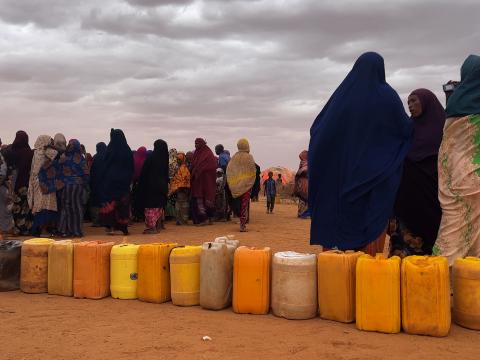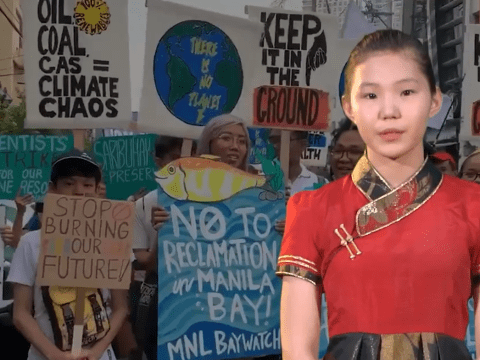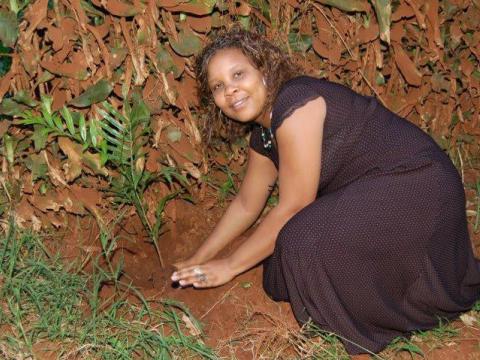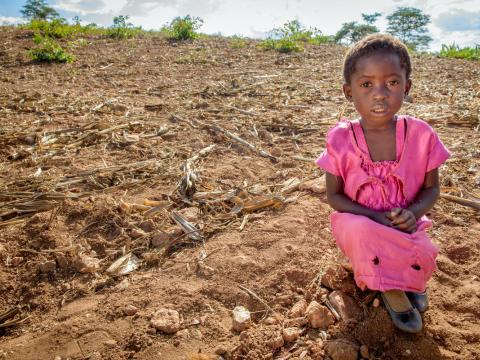
Europe's heatwave forces us to ask these three questions
Humanitarian disaster expert, James East, tries to keep his cool as a killer heatwave gives Europe a taste of what the Global South has faced for years.
19 July, 2022
In my home country of Britain, people are meeting the UK's hottest ever heatwave with the traditional mix of British delight and doom.
On the one hand, temperatures pushing 40C are a chance for children to splash in paddling pools and for adults to enjoy a Mediterranean-style climate without having to pay for a foreign holiday.
On the other hand, the government has put the country on Red Alert, warning people not to travel, to work from home if possible, and to check up on the most vulnerable. Everyone is sharing tips on how to keep homes cool, stop babies and pets overheating, and get to sleep on the sweltering nights.
Elsewhere across Europe, however, the situation is far worse: mass evacuations, hundreds of deaths from heat stroke or related causes, and forest fires running out of control.
The spike in temperatures spells disaster and is a taste of what millions in other parts of the globe have faced for many years now.
COVID-19 and the Ukraine conflict have demonstrated that our world is interconnected, that what happens to some of us can affect all of us. In the same vein, this heatwave should make us ask the following questions:
1) What does it mean for my country?
Much of the UK’s infrastructure, and I suspect most of Europe's, is totally ill-equipped for the extremes that climate change will bring. Hospitals are badly insulated and cooled, putting staff and patients in danger. Railway lines are at risk of buckling, forcing trains to run slow or be cancelled. Roads and runways are melting. Schools have closed or gone online. Homes are poorly insulated and lack air-conditioning. And cities function as furnaces.
And it’s not just the heat. Climate change will also bring heavy downpours, dangerous flooding, coastal erosion and weather patterns that farmers can no longer rely on. Our economy and infrastructure are woefully ill prepared. Will this foretaste of what is to come wake us up to some of the harsh realities of climate change and get us focused on solutions, investing in resilience and acting quickly?
2) What does it mean for those on the frontlines of the climate emergency?
The COVID pandemic humbled us all. We were all affected and identified with those who lost loved ones, wages and freedoms. We gained a global view of the impact of the virus and the world largely rose to respond. But will our climate-related disaster experiences give us the same compassion for others, especially vulnerable populations who are often unseen and largely voiceless?
Globally there are now some 50 million people on the edge of famine. Much of this is due to the effects of climate change. In East Africa - the epicentre of this climate-driven crisis - children are paying the highest price. Unlike European children who might switch to online learning or miss school for a few days, children in East Africa are often forced to abandon school altogether, to beg, or to work. Too many girls come off even worse, sold into marriage as children to older men to raise dowry payments; they then potentially face years of sexual abuse and lost life opportunities.
In Somalia, World Vision’s water delivery operations are literally helping to keep thousands of people alive. In one location, 18,000 people rely on daily water tanker truck deliveries with people queueing for hours in the heat for just a few litres.
The situation is now so dire that hundreds of thousands of people have abandoned their homes in search of food and water, their children dying enroute, their dead livestock littering the landscape. In the midst of our struggles with the heat, let's pray for them and act to help such people living with fragile access to water, shade or food.
3) What do we need to do more quickly to respond to climate change?
Time is running out. And yet it still feels like we are living through a scene from the Leonardo di Caprio movie, Don’t Look Up, in which an earth-killing asteroid hurtles towards our planet while a distracted world goes, ‘Meh’. The film was an allegorical tale for our age.
Do we simply treat the heatwave as our Mediterranean holiday or a warning of worse to come?
The release of the first photos of distant galaxies and stars from the James Webb telescope made me think again about our planet and our place on it. It’s impossible to look at those breathtaking images and not appreciate the fragility of our earth and its eco-system. In a universe of an estimated 200 billion trillion stars, we are just one planet circling a single star. Despite the vastness of space, we currently know of no living thing elsewhere. Our blue planet nestled under its fragile atmosphere is home to all known living things.
Is all of this to be put at risk because we are not wise enough to act, or work together to face down this enormous crisis? We united to tackle COVID-19. That was a mere forerunner for what we must do now. Now we must urgently green our economies. We must invest in clean energy. We must re-wild our spaces. We must hold ourselves, our companies and our governments accountable for doing all that must be done. We must keep temperatures below 1.5C. We must do all of this for the world's children.
We are currently way off track. Perhaps struggles with 40C temperatures, wildfires, heatstroke and melting infrastructure will be the wake-up call that the world has been waiting for?
To learn more about World Vision's work to mitigate the impact of climate change and environmental damage on children and their communities, click here.
James East is World Vision's Emergency Communications Director.
Image: Women waiting for a water delivery in western Somalia. Credit: World Vision


